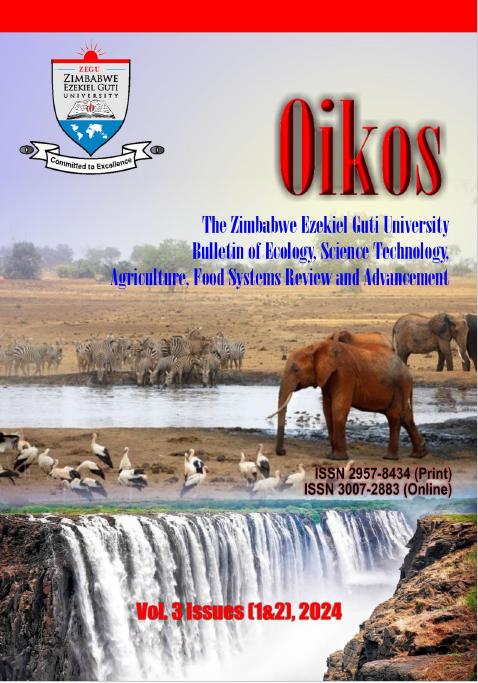Unpacking climate-related Indigenous Knowledge integrated in the Advanced Level Geography curriculum
DOI:
https://doi.org/10.71458/1y4cng40Keywords:
climate change education, climate change, indigenous knowledge, curriculum integration , heritage-based Education 5.0Abstract
This article critically investigates the specific types of indigenous knowledge (IK) that teachers in selected schools in Gwanda District, Zimbabwe, integrate into climate change education (CCE) to teach Advanced Level Geography. The study adopted a qualitative approach embedded in a case study design. Convenient and purposeful sampling was used to select the two schools investigated, and the study participants consisted of one Geography district inspector and four Advanced Level geography teachers. The study reveal that the current curriculum superficially addresses the integration of IK with no specific IK linked to specific Geography areas. The article reveal the following major types of indigenous knowledge that were found to be integrated in climate change education in the two selected school: Observation of vegetation characteristics (type, shape, spacing, shedding on and off of leaves), Beliefs about celestial bodies (e.g. the sun, the moon and the stars) Beliefs about animals, birds and insects‘behaviour and nature conservation practices. It was also reveal that teachers depend mainly on what they read in literature and what learners know about from their own home backgrounds. It was also reveal that there is lack of effective use of local area IK resource persons to assist teachers and learners within schools. This article recommends practical familiarisation of learners with local area IK in addition to what they read in literature. Furthermore, the education ministry must facilitate the provision of resource persons to help teachers with knowledge and additional literature on IK integration into the geography curriculum. This would help with more types of indigenous knowledge being integrated into climate change education in schools, and thus promote the heritage-based Education 5.0.




